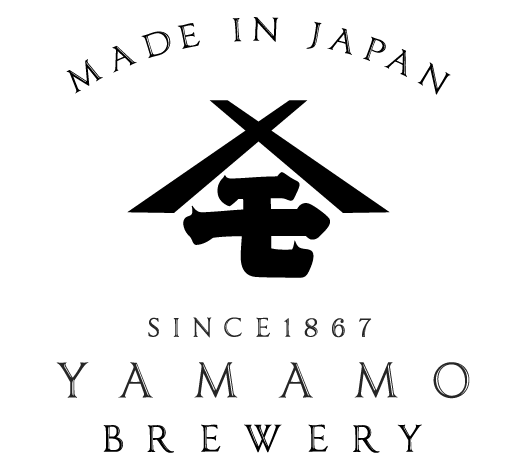感謝と地域の想いを伝えるローカルマガジン「ゆざわ人」に記事が掲載されております。ふるさと納税をした方に送られる湯沢市発行の季刊誌になります。湯沢で暮らす人に焦点を当て様々なジャンルの人たちに焦点が当たっています。そのため七代目・高橋のインタヴューが中心となっておりますが、ヤマモの商品や取り組みのみならず、ファクトリーツアーについても詳しくご紹介をいただいております。記事内容を以下にご紹介をいたします。ぜひ、ご覧ください。
Notice of Article Posting
An article is posted on the local magazine “Yuzawa-Jin” who communicates appreciation and local feelings. It will be a quarterly magazine issued by Yuzawa City sent to those who have taken taxes. I focus on people living in Yuzawa and focus on people of various genres. For that reason, interviews with Takahashi are the centerpiece of the seventh generation, but not only for Yamamo’s products and efforts, but also for factory tours are introduced in detail. I will introduce the content of the article below. Please take a look._mediainfo._local
文章發表的公告
一篇文章張貼在當地的雜誌“湯澤人”上,他們傳達了感恩和當地的感受。 這是由澤澤市發給那些已徵稅的季刊。 我專注於生活在湯澤的人,專注於各種流派的人。 因此,與高橋的訪談是第七代的核心部分,不僅對於Yamamo的產品和努力,還對工廠參觀進行了詳細的介紹。 我將介紹以下文章的內容。 請看看


◎感謝と地域の想いを伝えるローカルマガジン「ゆざわ人」
”伝統産業である日本の醸造業、その価値を世界に伝えたい。”
ヤマモ味噌醤油醸造元 / 髙茂合名会社
常務取締役
髙橋 泰さん(37歳)
醤油・味噌の蔵元として150年続く老舗で、代々継承される名跡「髙橋茂助」の7代目。地域で愛され続けてきた味を守りながら、世界市場への新たな展開を目指している。
◎ Local magazine that conveys appreciation and local feelings “Yuzawa people”
“I want to tell the world the value of the brewing industry in Japan, which is a traditional industry.”
Yamamo Miso and Soy Sauce Brewing Company / TAKAMO & Corp.
Managing Director
Yasushi Takahashi (37 years old)
It is a long-established store lasting 150 years as a sauce and miso brewer, the seventh generation of the famous race “Mosuke Takahashi”. While pursuing the taste that has continued to be loved in the region, we are aiming for a new development to the global market.
◎傳達欣賞和當地情感的本土雜誌“湯澤人”
“我想告訴世界,在傳統產業的日本的釀造行業的價值。”
Yamamo味噌醬油釀造商 / 髙茂合名会社
董事總經理
髙橋 泰(37歲)
這是一個長達150年的醬油和味噌釀造商,著名種族“髙橋茂助”的第七代。 在追求在該地區繼續受到愛好的品味的同時,我們也致力於全球市場的新發展。

”伝統産業ベンチャーの礎”
幕末の時代から、「髙橋茂助」という名跡を代々受け継ぐ老舗の味噌醤油醸造元が、秋田県湯沢市にあります。そんな家系に生まれながら、「若い頃は、全く継ぎたいと思いませんでした。」と言う、髙橋さん。しかし、心のどこかで「罪の意識」のようなものがあったそうです。
髙橋さんは、高校卒業後に千葉大学のデザイン工学部に進学。故郷から離れ、様々な刺激を受け、バックパッカーとして海外へも旅行し、やりたいことや好きなことに没頭したと言います。それが後に、家業の新規市場開拓や海外展開に大きな影響を与えることになります。
大学卒業後、秋田の家業を継ぐことを見据えて、東京農業大学の短期大学部(短期醸造学科)に入学。2年間、醸造学を学んだ後、大手醤油メーカーに入社。社会人として商品開発を学び、実家へと戻りました。その時、27歳。そこで、故郷の現実と向き合うことになります。実家の現場は、これまで学んできたことと違うことばかりで、苦悩したと言います。
“Foundation of traditional industrial venture”
From the end of the Tokugawa period, a well-established Miso soy sauce brewer that inherits the famous “Takahashi Mosuke” from generation to generation is in Yuzawa City, Akita Prefecture. While born in such a family, Takahashi says “When I was young I did not want to succeed at all.” However, somewhere in my heart there seemed to be something like “consciousness of sin”.
Takahashi entered the Faculty of Design Engineering at Chiba University after graduating from high school. Saying away from home, being stimulated variously, traveling abroad as a backpacker, he said he was absorbed in what he / she wants to do and what he likes. It will have a major impact on the development of new markets in the family business and overseas expansion later.
After graduating from university, I entered the Department of Junior College (short-term brewery course) of Tokyo Agricultural University with a view to succeeding Akita’s family business. After joining a major soy sauce maker after studying brewing studies for two years. I studied product development as a society and returned to my parents’ house. At that time, 27 years old. Therefore, it will face the reality of my hometown. I say that my parents’ site is distressed from what I have learned so far and suffered.
“傳統工業創業基金會”
從江戶時代起,“髙橋茂助”繼承代代相傳的名跡是歷史悠久的味噌醬油釀造源,位於秋田縣湯澤。在這樣一個家庭出生的時候,高橋先生說:“年輕時,我根本就不想成功。”然而,在我心裡,似乎有一些像“罪的意識”。
高橋畢業後,高橋先生進入千葉大學設計工程系。出門在外,接受各種刺激,還到國外作為一個背包客,它說,沉浸在你想要做什麼和喜歡它。這將對以後的家庭企業和海外擴張的新市場的發展產生重大影響。
大學畢業後,由於預計接管家族企業的秋田後,他就讀於農業(短期醞釀部)東京大學短期大學。在研究醞釀研究兩年後加入主要醬油生產商之後。我研究產品開發作為一個社會,並回到我父母的家。那時候,27歲。因此,它將面對我家鄉的現實。我說我父母的網站對我迄今為止所學到的東西感到困擾,

”後継者としての苦悩と進展”
「最初の1年が特に辛かったです。住む空間と働く空間が同じ環境であることも、ストレスでした。今思えば、自分で選択したはずなのに、色々なことをどこか親や家のせいにしていました。」と、塞ぎ込んでいた当時を髙橋さんは振り返ります。東京での新規市場開拓や海外での事業展開というビジョンがまだ無い状態の中で、自身がそれまで学んできたことと現場のギャップを日々感じながら過ごしたと言います。
そこでまず、髙橋さんはできることから行動を起こし始めました。
“ これまでのやり方や在り方に固執する人たちを説得し、古いものを改革し続けることでしか、前に進めません。苦しみが伴うプロセスだからこそ、それにチャレンジする意義があります。 ”最初は、会社のホームページやパンフレットの制作に取りかかりました。
商品の味を変えたり、パッケージを新しくしたりすることは、既存の顧客・ファンがいるため、急にできることではありませんでした。一方、販売促進のツール開発なら会社としても問題無いということで一任され、自由にできたそうです。そこで、海外への販売を想定し、架空のデザインで外国人に向けてのホームページを展開したところ、お客様から反応があったと言います。
“ アウトソーシングせずに、自分でやり始めたのが良かったです。会社のフィロソフィーや大切にしていることは、自分たちの言葉で伝えるべきだと考えています。特に私たちのように、製品が似通っている業界では、尚更その部分が重要になります。ワイナリーのように、自らの趣向と産業をミックスさせ、生き残っていくブランドづくりをしていきたいです。 ”
“Suffering and progress as successor”
“The first year was particularly painful, it was also stressful that the living space and the working space are the same environment.When I think now I think that I should have chosen by myself, but my parents and house owing a lot of things to something Takahashi will look back at the time he was occupied. In the absence of the vision of developing new markets in Tokyo and developing business overseas, he says he has spent the day feeling the gap between the scene and what he has learned until then.
First of all, Mr. Takahashi started taking action from what I can do.
“Only by persuading those who adhere to past practices and manner and continuing reforming old things is not going forward because it is a process accompanied by suffering and there is significance to challenge it.” At the beginning, We started on making homepage and brochure.
Changing the taste of products and renewing packages was not a sudden thing to do because there are existing customers / fans. On the other hand, if you develop tool for sales promotion, it was decided that it was OK as a company so that it could be done freely. Therefore, assuming sales to overseas, we developed a homepage for foreigners with imaginary design, it says that there was a reaction from the customer.
“It was good that I started doing it myself without outsourcing.I think that the philosophy of the company and what I care about should be conveyed in their own words.In particular when the product In similar industries, that part is more important, I would like to make brands that will mix my tastes and industries like a winery and survive.
“作為接班人的痛苦和進步”
“第一年特別痛苦,生活空間和工作空間是一樣的環境也是壓力的。當我想,我認為我應該自己選擇,但我的父母和房子因為很多事情高橋將回顧他被佔領的時間。在沒有在東京發展新市場,開拓海外業務的願景的時候,我說我花了一天時間感受到現場與我之前學到的差距。
首先,高橋先生從我能做的事開始採取行動。 “只有說服那些堅持過去的做法和做法,繼續改革舊事的人,才不會因為痛苦過程而有所改變,而且是有挑戰的。”一開始,我們開始製作主頁和小冊子。
改變產品的味道和更新包不是突然的事情,因為有現有的客戶/粉絲。另一方面,如果您開發銷售促銷工具,則決定將其作為公司可以自由完成。 因此,假設在海外銷售,我們為想像設計的外國人開發了一個主頁,表示有客戶的反應。
“我自己做的很好,沒有外包。我認為公司的理念和我所關心的應該用自己的話來傳達,特別是如果產品 在類似的行業,這一部分更重要,我想使品牌將混合我的品味和行業,如釀酒廠,並生存下來。

”世界に誇れる日本の醸造業”
5年前から動き始めた、海外展開。その後、海外の市場調査を経て、ロゴマークやパッケージのリデザインを行い、外国語対応のオンラインショップも展開。その活動は、2013年度「グッドデザイン賞」にも選ばれました。海外を視野に入れた活動を続け、世界における日本の醸造業を客観的な視点で捉えるようになったと言います。そして、髙橋さんには1つの使命感が生まれました。
“ 日本人は、まだ醤油や味噌の魅力を海外で伝えきれていません。「味噌・醤油をつくる」という日本の伝統産業を日本人の手によって、もっと世界に誇れる文化的価値の高いものにできると私は信じています。先人たちの想いと共に、地域の自然・歴史・文化を受け継ぎながら、現在の日本の醸造業は成立しています。それを踏まえ、これから世界と共に生き残っていくのであれば、「自分たちが何者であるか?」という問いに改めて向き合うべき時だと考えています。 ”
その中で、髙橋さんは「味噌・醤油をつくる」という営み自体に価値があると考え、醸造工場の体験を売る「ファクトリーツアー」を展開しています。醸造業の伝統を受け継ぐだけに止まらず、イノベーションを起こし続けるための取り組み。100年企業の新たな挑戦です。
“Japan’s brewery industry proud of the world”
It began to move from five years ago, overseas deployment. After that, after overseas market research, we redesigned logo marks and packages, and also developed online shops for foreign languages. Its activities were also selected for the “Good Design Award” in 2013. We continue to engage in overseas activities and say that we have caught the world’s brewing industry from an objective point of view. And Mr. Takahashi was born a sense of mission.
“The Japanese have not yet been able to tell the charm of soy sauce and miso abroad.The Japanese traditional industry of” making miso and soy sauce “to be more proud cultural value proud of the world by Japanese hands I believe I can. Together with the desires of the predecessors, the inheritance of the local nature, history and culture, the current brewing business in Japan is established. Based on that, if we are going to survive with the world from now on, we think that it is time to face the question “Who are we?”
Among them, Mr. Takahashi thinks that” creating miso and soy sauce “has value in itself, and develops a” factory tour “that sells the experience of a brewery factory. Efforts not only to inherit the tradition of the brewing industry, but to continue innovation. It is a new challenge of a company for 100 years.
“日本啤酒業為世界而自豪”
從五年前開始,海外部署。 之後,經過海外市場研究,我們重新設計了商標和包裝,並開發了外語網絡商店。 其活動也在2013年被選為“優秀設計獎”。 我們繼續從事海外活動,說我們從客觀的角度來看世界的釀造行業。 髙橋先生誕生了使命感。 “日本人還沒有能夠說出醬油和味噌在海外的魅力。
日本傳統的製作味噌和醬油的傳統產業,以日本手為世界而驕傲的文化價值觀 我相信我可以。連同前輩的願望,地緣性,歷史文化的傳承,目前在日本的釀造事業已經建立起來了。 基於此,如果我們要從現在開始與世界一起生存,我們認為現在是時候面對“我們是誰? “
其中,髙橋先生認為”製作醬油和醬油“本身俱有價值,並開發出售啤酒廠經驗的”工廠參觀“。 努力不僅繼承釀造行業的傳統,而且繼續創新。 這是公司100年來的新挑戰。




































